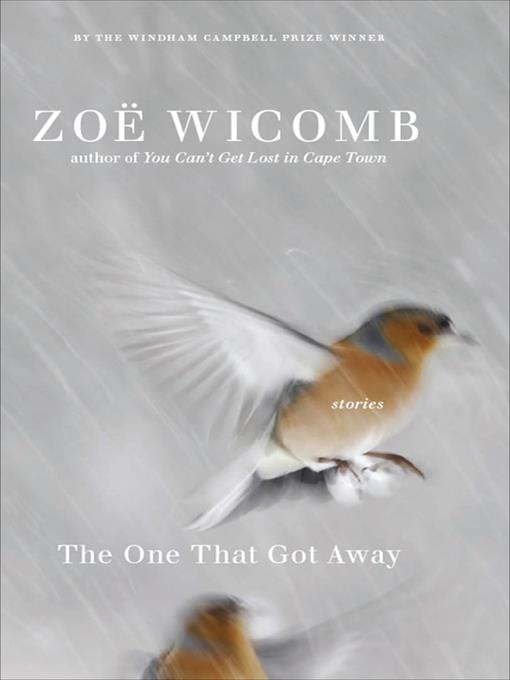
The One That Got Away
Stories
کتاب های مرتبط
- اطلاعات
- نقد و بررسی
- دیدگاه کاربران
نقد و بررسی

April 20, 2009
South African–born Wicomb's second collection subtly portrays the shifting relations among family, friends and servants in a transformed South Africa. “Friends and Goffels†renders the disruption in the friendship of Dot and Julie, who were once united by their dark skin color but who have been separated by Julie's years abroad and marriage to a white Scotsman. In “Mrs Pringle's Bed,†Polly Pringle confines herself to the bed that once belonged to her daughter and, with the aid of her uncomprehending housekeeper, manipulates her bewildered husband. In these and other stories, changes in perspective open up what could be very claustrophobic narratives. Wicomb also sets many stories in Glasgow—both the title story and “There's the Birth That Never Flew†follow a newlywed South African couple on their honeymoon there; in “In the Botanic Gardens,†Dorothy Brink makes the long journey from South Africa to Glasgow to find her son, who has gone missing. Encompassing a range of voices and attitudes, Wicomb's work impresses, though some of the diction—South African and Glaswegian—and nuances of class and race may elude an American audience.

May 15, 2009
Elliptical stories about the complexities of race, class, gender, generation and geography.
A native South African who now lives and teaches in Scotland, Wicomb (Playing in the Light, 2006, etc.) employs both Cape Town and Glasgow as settings, most often both in the same tale. She opens with"Boy in a jute-sack hood," a short but densely packed stream-of-consciousness narrative by an academic who has transplanted himself from his native Scotland to South Africa. Having just finished a book after his wife (or lover) has left him, he seems to live mainly inside his head, until a chance encounter with a worker's son renews a spark of social engagement."Disgrace" depicts the awkward relationship between Grace, a 74-year-old South African cleaning woman, and a visiting Scottish poet and anti-apartheid activist. The collection takes a metafictional turn with"The one that got away," about a Scottish-born conceptual artist and his no-nonsense South African bride on what passes for a honeymoon in Glasgow; ultimately, Wicomb has her male protagonist commenting on his portrayal in the fiction. The same couple returns in"There's the bird that never flew," in which the artist offers his wife some advice that might provide a key to appreciating these stories:"There is nothing to it, nothing arcane about looking at art. It's just about giving it time, attention, looking carefully, because if you can describe a work accurately, you're more than halfway towards understanding what's going on." Most of the stories find a character translating experience from one culture to another, both cultures likely foreign to the reader, who must decipher patois such as dronklap, bredie and verskrik from context. The author plunges the reader into the middle of each, letting the stories and characters reveal themselves as they proceed.
Writing fiction connecting Scotland and South Africa presents a challenge, but Wicomb makes both worlds her own.
(COPYRIGHT (2009) KIRKUS REVIEWS/NIELSEN BUSINESS MEDIA, INC. ALL RIGHTS RESERVED.)

June 1, 2009
Wicomb followed up her critically acclaimed collection of apartheid-era short stories, "You Can't Get Lost in Cape Town", with two novels. Here she returns to the short story, a genre that seems to suit her writing style, which combines economy with depth and eschews cleverness for its own sake. Wicomb is adept at telling a compelling story and having something worthwhile to say at the same time. Set mainly in either Cape Town or Glasgow, these intersecting stories reveal the subtleties of the relationships between peoplebest friends who have grown apart, husbands who do not quite understand their wives, servants and the people they serveas well as exploring the relationship of art to reality. VERDICT The dual settings allow for insights into racial stratification, gender, identity, and the colonial past, which makes for fascinating reading. Recommended for anyone who enjoys good fiction.Gwen Vredevoogd, Marymount Univ., Arlington, VA
Copyright 2009 Library Journal, LLC Used with permission.

























دیدگاه کاربران